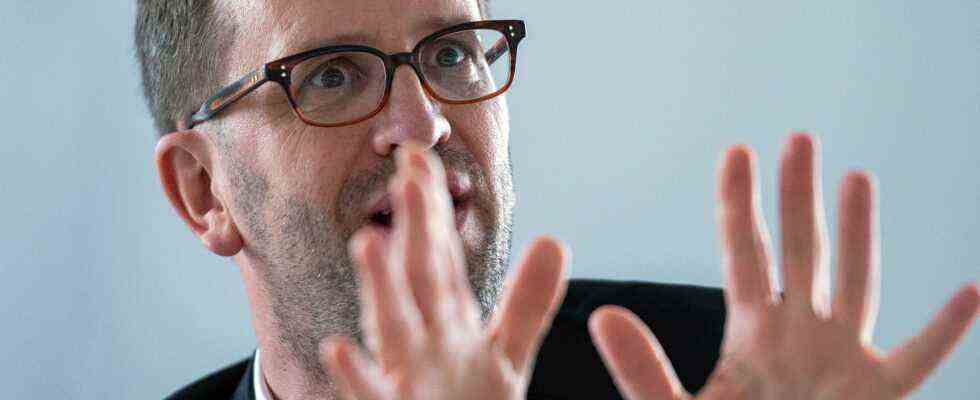Status: 01/20/2022 12:47 p.m
The head of the Federal Association of Consumers, Müller, has made a name for himself as an early warning of “horrible energy prices”. As the new head of the Federal Network Agency, he has the chance to change that.
It is a personal issue that is not only causing a stir in political Berlin, but could also be of interest to all those consumers who complain about excessive electricity and gas prices: The head of the Federal Association of Consumer Organizations and former Greens politician Klaus Müller is to become President of the become the Federal Network Agency. According to media reports, Federal Economics Minister Robert Habeck (Greens) wants to propose the 50-year-old as the successor to the previous incumbent Jochen Homann, who will retire at the end of February.
Müller was a member of the Bundestag from 1998 to 2000 and Minister of the Environment and Agriculture in Schleswig-Holstein from 2000 to 2005. He has been at the head of the Federal Association of Consumer Organizations (VZBV) in Berlin for almost seven years. In this function, he had recently distinguished himself as an early warning of rising energy prices.
Heating allowance of 500 euros required
As early as October last year, Müller warned that gas prices would be too high in winter and called on the federal government to take action in impressive words: “There is a risk of terrible energy prices.”
Müller recently criticized the one-time heating subsidy for housing benefit recipients of at least 135 euros planned by Housing and Building Minister Klara Geywitz (SPD) as too low to compensate for the increased energy costs. “At least 500 euros per household” would be appropriate.
EEG surcharge should be canceled faster
He also called for the immediate cancellation of the EEG surcharge. The “surcharge for the promotion of energy production from renewable energies according to the Renewable Energy Sources Act” fell from 6.5 to 3.7 cents per kilowatt hour on January 1st. In the coalition agreement of the traffic light parties, a complete abolition of the EEG surcharge has already been agreed – but not until January 1, 2023.
In an interview with the “Passauer Neue Presse” just a few days ago, Müller warned that the federal government had to “speed up the expansion of the power grid and renewable energies in order to become more independent of oil and gas in the medium term”.
Key point of the energy transition
While Müller was previously a harsh critic from the sidelines, his new post gives him the power to change the prevailing conditions on the energy market. After all, it is not for nothing that the Federal Network Agency, which is part of the Federal Ministry of Economics, is considered a key point in the energy transition.
Their traditional tasks include structuring the conditions under which electricity and gas providers can use the networks for delivery and regulating the fees that are charged for this. It also has extensive powers when expanding the power grids as part of the energy transition.
Stromio, Grünwelt and gas.de in the sights of the network agency
Launched in 1996 as the regulatory authority for the postal and telecommunications market, the Federal Network Agency now also regulates the electricity market and the rail sector. In addition to questions of competition, the concerns of consumers are increasingly in focus.
The Federal Network Agency is currently investigating suspicions about the discount providers Stromio, gas.de and Grünwelt. They are said to have terminated hundreds of thousands of electricity and gas customers in order to profitably sell their quotas to large customers.
The sword of Damocles over Nord Stream 2
But the high energy prices are not the only major construction site for the new head of the Federal Network Agency. The Bonn authority is also of particular importance in the debate about Nord Stream 2. The pipeline, which is to run from Russia directly to Germany, must be certified by the Federal Network Agency before it can go into operation.
The Federal Network Agency interrupted the certification process in November and imposed conditions on Nord Stream 2. Among other things, the company is to set up a subsidiary in Germany. This subsidiary is to become the owner of and operate the German section of the pipeline.
Nord Stream 2 has announced that it will meet the requirements, but according to the Bonn authority, any certification is likely to last until the second half of 2022.

